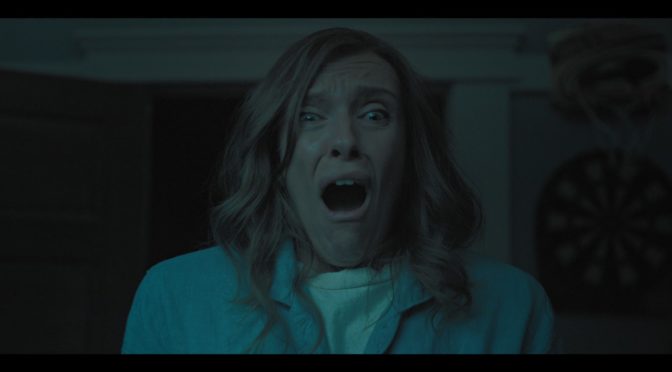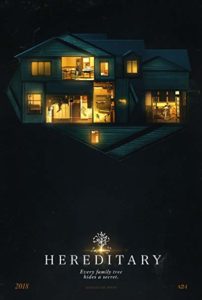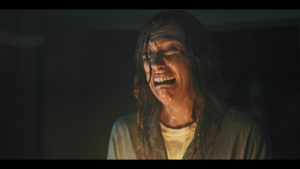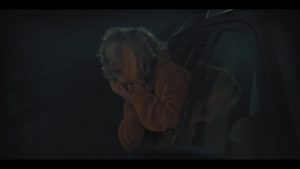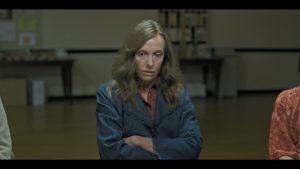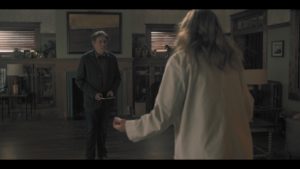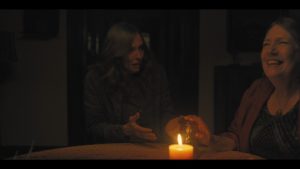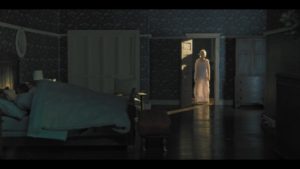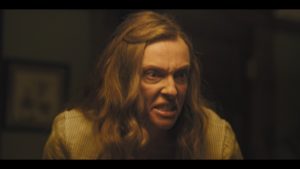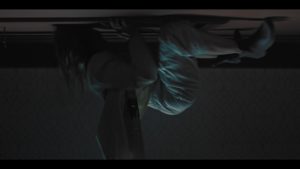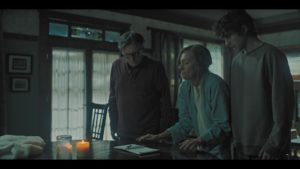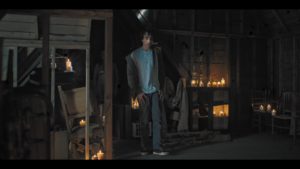To begin, I am pointedly not going to talk about the Horror Renaissance again. Masterful horror films from exciting new voices are coming out at such a reliable tilt these days that the term is starting to feel condescending. As if the genre’s potential for depth, stunning characterization and overall greatness should be any surprise by now. At this point, if you don’t already know that some of the most brilliant, emotionally nuanced and insightful films of the last decade have been in the horror genre, I’ll just remind you that they exist and that every cinema lover owes it to themselves to seek them out. Yes, horror is rolling along with supreme confidence right now and that is a great thing for film in general. What’s really been heartening isn’t just how many great horror films have come out in recent years. It’s the sheer diversity of this boom. The number of different kinds of stories that have been told using the tools of horror cinema. The sinister and subtle feminism of Robert Eggers’ The VVitch. The evocative blend of John Carpenter nostalgia and AIDS paranoia that colors It Follows. The gorgeously chilling chiaroscuro phantasmagoria of Jennifer Kent’s The Babadook. At its best, horror has an endless palette of colors to paint with and an unlimited number of interesting and important things to say. Ari Aster’s brilliant debut film Hereditary is a film with a lot of insights and ideas on its mind. About the burden of upbringing, the anguish of loss, and the all-consuming obsession of grief. But beyond its psychological depths, Hereditary is one of 2018’s most punishing cinematic forces of nature. Few of the year’s films operated on a more visceral level. Hereditary is just one of the most deeply, terribly felt horror films in quite some time. Its deep and unsettling themes aside, no film conjured a more palpable and overwhelming aura of anxiety, sorrow, and nameless dread. If you’ve ever woken up with a particularly savage hangover, muscles aching, face damp with cool, sickly sweat and an indescribable throb of guilt and regret pulsating in your temples, that might go a small portion of the way toward describing what it was like to watch Hereditary for the first time. What it was like to marinate in its dankly suffocating, ominous mood. Here is a film completely suffused in the unshakable feeling that things are going very wrong and that even more terrible things lie just beyond the horizon. For all its incredible skill at conjuring terrifying, stomach-twisting imagery, its most unnerving quality may be its ability to continually amplify its own sense of foreboding. As horrific as Hereditary gets, you can never escape the dread that this is only going to get worse. It may sound like a strange endorsement, but we all need to vicariously experience a little doom and dread sometimes. You really haven’t taken in the full scope of 2018’s film riches until you’ve seen this stunning high watermark in feel-bad cinema.
Hereditary opens on the text of a 78 year-old woman’s funeral invitation and that opening is about as mournful as it sounds. Still, the sad, discordant tones of Colin Stetson’s eerie saxophone score promise us much more sorrow to come. Mourning a dead grandmother will really just be the very tip of the iceberg here. The deceased is the mother of Annie Graham (a brilliant Toni Collette, not so much going through the stages of grief as pounding them down like shots of whiskey), a diorama artist in Montana. Annie lives with her mild-mannered Irish husband (Gabriel Byrne, dialing back all his intensity to play a meekly protective warm cup of milk of a man), and her two children, sixteen year-old Peter (Alex Wolff, tremendous and rattled beyond belief) and thirteen year-old Charlie (Milly Shapiro), an eccentrically melancholy young girl with an instantly foreboding nut allergy. So we meet the Graham family in the midst of a serious bout of bereavement and their lives proceed, over a period of some months, to get much sadder and uglier. Thirty minutes haven’t even passed when something terrible and grotesque happens and the Grahams end up burying a second family member under even more tragic circumstances. Peter becomes consumed with guilt. The father becomes an even more ineffectual shell of non-confrontational comfort. And Annie becomes an angry, grieving, unhinged force of nature. She finds no solace in the local grief counseling sessions at the town recreational center. She foams and accuses and lashes out at her milquetoast husband and the moody, bereft son she not so secretly blames for her misery. The only small comfort she seems to find is in Joan (the indispensable Ann Dowd), a kindly older woman she meets in the parking lot after a counseling session. She has recently lost a child and a grandchild in a drowning accident and she has a way of speaking plainly and listening attentively to Annie. For a very short time, it seems like Annie could find some semblance of stability. And then Joan brings Annie home and convinces her to take part in a séance. A séance that seems to successfully conjure the spirit of Joan’s departed grandchild. Annie sees a chance to maybe reach out to her lost loved one and she forces her reluctant family to participate, much to their discomfort and trepidation. It’s hard to say much more without giving the whole fearsome, gutting rollercoaster away, but suffice to say that Annie’s read on the spirit world is wrongheaded and nothing she does in the name of assuaging her or her family’s suffering works. In Hereditary, the unbearably sad becomes the unthinkably tragic and then hurtles speedily into the realm of the unimaginably sinister and macabre. Ari Aster ratchets up the dark and terrible vibes of his domestic chamber of horrors with masterful aplomb. He starts with a funeral for an estranged mother and confidently announces that this is nowhere near rock bottom. When the film ended, I wasn’t sure that I’d even seen the bottom at all. Hereditary feels like an extended free fall into an abyss that never ends.
The best way to put it might be to say that Hereditary starts as a harrowing study in grief and that it never really stops being that. It’s just that it then proceeds to find a portal to Hell underneath grief’s floorboards. It finds so much devastation, dysfunction, and trauma under its initial bereavement, that normal grief seems benign by comparison. That said, the early scenes of Hereditary are so crushingly perceptive about grief that it would already be a beautifully, relentlessly upsetting piece of work if it went no further than a family’s loss. Hereditary is such a tense and superbly crafted work of art that it almost feels wrong to single out the acting. But I can’t very well not highlight Toni Colette’s gripping primal howl of a career best performance. Before candlelit ceremonies and cryptic incantations and demonic portents enter the picture, Hereditary already feels like a cursed object just because of the sheer depths of Annie Graham’s pain, anger, and almost animalistic rage at the world. Gabriel Byrne and Alex Wolff are also brilliant, with each actor bringing nuance to starkly different studies in how people process tragedy. One of them exploding outward into a supernova of teeth-gritting anguish. One curling up into a tweedy cocoon of politeness and domestic obligation. And one trying and utterly failing to rationalize and medicate away his feelings of personal responsibility for his family’s torment. The depth of characterization in Hereditary is stunning and ensures that it feels painfully grounded no matter how wild its plot machinations become. If Hereditary were nothing but a very somber domestic drama about heartache and blame, it would be one of the most breathtakingly excruciating ever committed to film; an account of bewildering grief and familial torment to proudly stand with the likes of In the Bedroom. Before the quicksand of even more sinister forces swallows the Grahams whole, they are already locked in a battle with all-consuming bereavement that they are completely powerless to win.
As elementally strong as the film shows grief to be, however, the truly primal, downright primeval power at work is right there in the film’s title. Hereditary. The weight of family (genes, family histories, destructive cycles of behavior passed down through generations) is an unbearably heavy thing in Hereditary. Ari Aster presents family as a kind of blood pact forged years before we were even born, from which there is no escape. And again, Aster’s gift here is really how much menace he can conjure before he even turns to the paranormal. The first twenty minutes of the film hold the most nauseating gut punch in all of 2018 cinema, and it’s all just the result of normal, sadly plausible human behavior. Hereditary makes the long shadows of ancestry and upbringing feel terrible and burdensome before a single supernatural thing happens. The mere mixture of horrible loss and family miscommunication is enough to form a perfect storm of animosity and foreboding. The most awful demons are already inside the Graham house before any seances are held. After the film’s second funeral (in which Ari Aster’s camera appears to bury the Grahams and us along with the departed), the feelings of sorrow and anger, both spoken and unspoken, become absolutely palpable. They radiate in the air like a heat wave. There is no shortage of stories about toxic relationships between parents and their children, but Heredeitary feels like some kind of dreadful scientific breakthrough in capturing domestic unrest. The amount of white-hot vitriol Toni Collete puts behind the phrase, “I am your mother”, has a staggering stinging power. Even a biting look at mother-child tension like Coraline feels like a warm cup of chamomile tea next to Hereditary’s tumbler of vinegar and turpentine. And it’s not just how Ari Aster taps into the heightened emotions and feelings of obligation that can really only come from our blood ties. It’s also how he strips family of any connotation of comfort or affection. He puts the concept of family into some demonic still and boils away all the love and understanding and unconditional acceptance. What remains is the kind of anger that you can only feel for a person when you know their neuroses inside and out; the kinds of pointed blame and torment that family members have the unique ability to inflict on one another, because they alone know how. Hereditary is about the ties of kinship slipping loose and then reforming into a noose around the necks of our main characters. Everything warm and familiar about our flesh and blood is blanched away and all that remains is the sterile, unfeeling sensibility of that title. “Family” sounds like a warm hug and a heart-to-heart chat. “Hereditary” sounds like a homicide report.
Hereditary is about feeling dwarfed and defeated by forces too massive to fathom. That force might be grief and it might be the deterministic feeling that our own DNA and family histories have conspired against us. The other elemental force operating here is a sense of guilt too great to even name. Annie Graham blames her estranged mother for her own feelings of inadequacy. And she knows that her mother put blame on her. She does not even fully know what she was blamed for and it doesn’t matter. “I am blamed,” she stammers tearfully. Annie blames her own bloodline, full of disorder, depression and suicide. She grits her teeth at a husband who hides from the full weight of their tragedy. She blames Peter for their latest loss, and Peter in turn blames himself and her. And the father blames Annie and her dysfunctional genes for obliterating any sense of decorum and decency in their rapidly devolving household. Hereditary is a nightmare of guilt and blame so powerful that it sucks every health emotion into a screaming vortex. When the story takes a turn for the demonic and outwardly evil, it’s terrifying but it also feels like a natural extension of what came before it. Ari Aster shows us a family that has traveled through so much blistering pain and guilt that the idea of anything ever being normal for them again is laughable. It makes sense that the film finally careens into pure, grisly phantasmagoria because there really is nowhere else to go. Devastation as powerful as what the Grahams experience is not something you just come back from. If the film didn’t conclude with bloody sacrifice, arcane ritual and hellish omens, I’m not sure where it would even end up. Ari Aster sees the Grahams, and maybe all human beings, as being hopelessly swept up in the tides of cosmically powerful forces. Somewhere beneath the surface of our routines and our practiced civility lies an ocean of despair. Many of us are fortunate enough to never become aware of it, but it is always there. The awful potential for everything to be taken away from us. And if you are unfortunate enough to fall into that ocean, what can you really do then? There are simply forces and feelings that are too strong to fend off or struggle against. Hereditary is about being caught in a rip tide of terrible circumstances that were set in motion long before we even got here.
All that makes Hereditary the rare horror film that works on a psychological level while also being totally above and beyond things like ideas and themes. It is a tremendously smart film with a lot of subtext to dig into. But the further this haunting chain of events progresses, the less its intellectual qualities matter. I spoke to a few friends who are fans of Hereditary but who expressed some disappointment in the film’s ending. They didn’t completely care for how explicitly demonic the film becomes, as if it turned the film’s ominous subtext into something too literal. I understand the criticism, but to me this is one of the film’s great strengths. There are plenty of great horror films that operate in ways that are largely symbolic and I love them for it. But too much reliance on the symbolic and metaphorical can rob a terrifying film of its urgency. Even a grueling new horror masterpiece like The Babadook leaves some ambiguity as to how much of the terror we see really happens. The film can be enjoyed for its cathartic scares, but it also leaves some some room to explain away those scares as metaphors. Maybe the horror was just there to make us think and now we can turn the movie off and put what we saw out of our minds. That cerebral, symbolic quality can give us a little bit of safe distance. Hereditary is absolutely not that kind of horror film. Its aim, first and foremost, is to make us feel profoundly upset. There is no protective intellectual buffer here. The grisly, ecstatically shocking imagery does have deeper meaning, but everything we see in the film is also very much happening and that lends the film a dreadful immediacy. Ari Aster’s fiendishly frightening new horror classic flings its doomed family and its hapless audience into a maelstrom of menacing events. It’s a broken elevator plummeting into the dark heart of the Earth; the kind of bracingly bleak work that knocks the wind out of you because, Satanic rituals and all, it feels so distressingly real. Even at its most fantastical, this is always the tale of a recognizably scarred family losing their sanity, each other and their own damned heads. Hereditary is a journey into the bowels of Hell and there is nothing the least bit metaphorical about that. Metaphor would be too easy an escape hatch for a cinematic wringer like this. This film made me feel absolutely dreadful, but also perversely giddy. Every ounce of anxiety, fear, sorrow, and foreboding I’d felt in the past year was right up there on the screen. I hadn’t left a movie so thoroughly miserable in years. And it was glorious.
